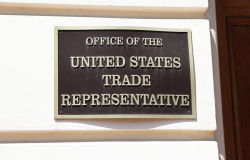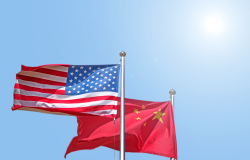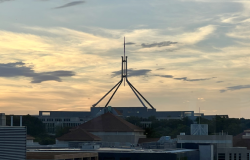Ground Truth Briefing | A Done Deal?: Addressing the U.S.-Mexico Migration Challenge
Join our experts BY PHONE for a Ground Truth Briefing on the migration challenge and implications of the agreement.
Overview
President Trump announced in early June that the United States would apply a 5% tariff on all Mexican imports until “the illegal immigration problem is remedied.” Mexico and U.S. officials worked on an agreement to delay implementation of the measure, and President Trump announced that the tariffs were “indefinitely suspended” on June 7, 2019.
The proposed tariffs are still on the table, however, pending an evaluation period of 45 days. In that time, Mexico has agreed to deploy thousands of National Guard troops to its southern border with Guatemala to reduce the number of migrants headed to the U.S. It also will take steps to dismantle illicit organizations and networks at the U.S.-Mexico border, and accept more migrants seeking asylum in the United States as they await the adjudication of their claims.
In this Ground Truth Briefing, experts discussed the migration challenge and implications of this agreement.
Selected Quotes
Alan Bersin:
“So in the short term, it’s claimed as a success for both. In the long term, it threatens something that is much more important – which is the strategic relationship between these two countries, each being critical for the other.”
“The first months of the López Obrador administration actually proved that in a situation where Mexico is now a transit country, and increasingly, a destination country as the world’s 13th largest economy, that there needs to be a transition in Mexico.”
“At some point, President López Obrador is going to be compelled to respond to Mexican political opinion, and he will call the President’s bluff on tariffs. Because, in fact, yes, Mexican exporters will be harmed by tariffs, but the immediate pain is felt by American consumers and American farmers.”
Gretchen Kuhner
“There were some components about strengthening the U.S. asylum system as well. And I haven’t seen anything…about what the benchmarks are within the U.S. and within Mexico. It’s just been suddenly, ‘Will Mexico be able to detain and deport enough people so that the numbers go down on the northern border?’ So, very disturbing in terms of the way it was crafted through pressure against the Mexican government and I am not really sure what is going to happen next and I don’t know how to tell whether or not Mexico can comply because I don’t know what the benchmarks are.”
“We’re absolutely going to see an increase in human rights violations because if we already had so many many human rights violations and so many issues with kidnapping, with smuggling, with so many types of violence against migrants within Mexico with just an administrative body in charge of enforcement, what can we expect from people who haven’t been trained?”
“You have to start somewhere. People are saying that people don’t want to stay, that they don’t want to request asylum in Mexico. Well, they’re not going to request asylum in Mexico especially if there is no place to request asylum or if you have nowhere to go after you do request asylum. I think there’s a lot of work to be done in that area as well.”
Gustavo Mohar
“I think we are on the verge of beginning to have a new regional migration reality between the U.S., Mexico and Central America. I hope that it will evolve in a more competitive and shared responsibility point of view, than what has been today: a very aggressive, unilateral demand from the Trump administration that forces Mexico to do a fundamental change, which is very subjective to measure, in the southern border of Mexico to stop, deter or diminish drastically the flow of undocumented Central Americans.”
“Between Mexico and the U.S., for many years, we found that working together was the best way to manage undocumented migration between our two countries.”
“The priority of the Mexican government today is fighting crime and giving their citizens security. So now because of the Trump way of imposing things, we had to divert these people to do these jobs instead of working together on finding the Mexico and U.S. a better way to deal with this crisis. I think that sharing responsibility is a win-win, and acting unilateral is a lose-lose.”
“This is a short-sighted policy. I will say that even though it is a very short time, it opens the space and opportunity for Mexico, the U.S. and Central America to work together to find a better deal – joint responsibility – and pass this crisis… But let’s go now to the bottom end of this things and work together on all the issues – borders, security, trafficking, and economic development.”
Speakers

Alan D. Bersin
Assistant Secretary for International Affairs and Chief Diplomatic Officer for the US Department of Homeland Security (DHS) Office of Policy, and Vice President of INTERPOL for the Americas Region
Gretchen Kuhner
Gustavo Mohar
Hosted By

Mexico Institute
The Mexico Institute seeks to improve understanding, communication, and cooperation between Mexico and the United States by promoting original research, encouraging public discussion, and proposing policy options for enhancing the bilateral relationship. A binational Advisory Board, chaired by Luis Téllez and Earl Anthony Wayne, oversees the work of the Mexico Institute. Read more
Thank you for your interest in this event. Please send any feedback or questions to our Events staff.











